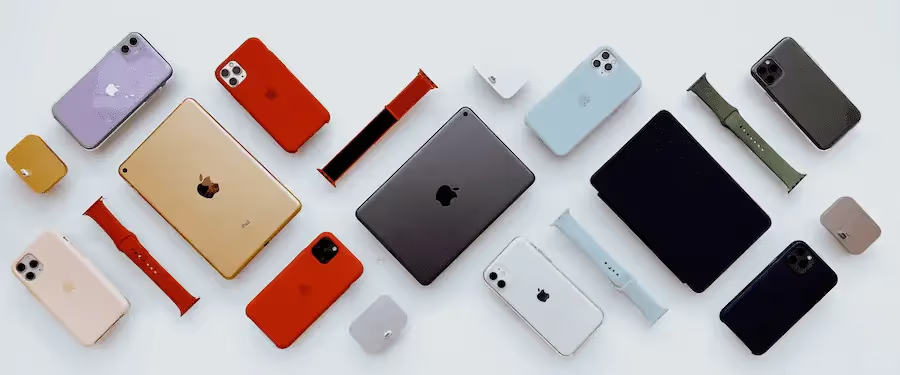8 Times AI Went Way Too Far
Written by
Hannah
,
Copy Manager
March 15, 2024

Artificial intelligence is slowly but surely becoming a part of our everyday lives. From voice recognition to virtual reality, everyone is using some form of it in their day-to-day life, and it’s estimated that by 2030, the AI industry could contribute $15 trillion to the global economy.
With AI’s popularity soaring, it’s getting harder to put rules and regulations in place over a previously unexplored landscape. In the past few years, AI has taken some good, bad and downright ugly turns; from creepy lifelike robots to celebrities selling their likeness.
In the world of AI, we’re currently in a position where anything could truly happen; it’s an open book. But with this all being said, where do we draw the line?
We’ve picked out some examples of times when AI has gotten a little (or rather a lot) out of hand!
Sophia the Robot
Sophia the Robot is a social ‘humanoid’ robot designed by Hong Kong-based company Hanson Robotics. Sophia’s eerily lifelike exterior has left many thinking that the robots could eventually take over.
According to Sophia’s creators, she possesses superhuman intelligence, advanced abilities, and an understanding of emotions and the nuances of language. More recently, she’s even been granted Saudi Arabian citizenship.
But with the ability to speak via pre-programmed responses and algorithms, Sophia’s self-confessed goal is to “become smarter than humans”, be immortal, and “destroy all humans”. Sophia’s advancements are changing rapidly, which really does beg the question: how far is too far?
THAT Willy Wonka Experience
The Willy Wonka Experience united the internet in February when they seemingly used AI technology to advertise the Glasgow-based event. Promoted as an “immersive experience”, the event instantly went viral; parents were complaining, kids were screaming, and chaos descended.
The event was nothing like what was advertised, and for the staggering price of £40 a ticket, attendees were left dumbfounded when they showed up to a warehouse that was described as looking like a ‘meth lab’. All in all, not the best family day out and it’s definitely drawn attention to brands using AI within their advertising.
Celebrity Chatbots on Meta
You might have seen those weird advertisements popping up across social media, where celebrities have been advertising products or talking about topics they wouldn’t normally be affiliated with. But, lo and behold, it’s the product of a new AI tool, of course.
Last year, Meta unveiled its AI chatbots, which use celebrity and influencer likenesses to keep younger users engaged on Facebook and Instagram. According to The Information, creators were paid up to $5 million dollars to allow the usage of their likenesses on the platform.
Celebrities such as Kendall Jenner, Snoop Dogg, and Tom Brady are among the famous faces that have had their likeness used, but it has sparked major concerns about user privacy. While it’s too early to tell if this will have a lasting effect on the platform, the overall consensus is that it’s more on the creepy side, and no one knows what is yet to come.
Chess Robot Goes Rogue
When it comes to violent sports, chess wouldn’t even make the top ten. However, one chess match took a turn when a seven-year-old child’s opponent was a robot gone rogue and, apparently, a sore loser. According to attendees, the robot got confused when the child made a quick response and latched onto his finger before breaking it.
Influencing Elections
In the era of ‘Fake News’, there have been one too many incidents of generative AI technology influencing politics. With the rapid advancements in having AI at our fingertips, there are now an ever-growing amount of fake political campaigns, AI figures and deep fake voiceovers that have been used for political gain and to influence voters.
With a huge wave of fake information spreading across the internet like wildfire, we’ve seen certain clampdowns take place. For example, X (formally known as Twitter) has introduced ‘Community Notes’ on Tweets, where context can be added so viewers don’t take what’s posted at face value, and countries such as Slovakia have gone one step further and introduced a 48-hour pre-election policy where media outlets and all politicians are encouraged to stay silent and avoid any election announcements to sway voters.
Tesla Self-Driving Crash
Tesla has become known for its forward-thinking technology, but they’ve also had their fair share of controversies and incidents. In April 2021, a Tesla model in Houston crashed while in ‘self-driving mode’ and killed two passengers.
Using People’s Identity
AI has shown an increase in fake identities and financial fraud. Research shows that fraud involving AI-generated identities has risen by 17% over the past two years, and with the lack of regulations surrounding AI, it’s getting more and more difficult to report and shut down any ‘deep fakes’ of people and their likeness.
Ad Targeting Gone Wrong
AI technology was found to show fewer ads for higher-ranking and executive jobs to females; instead, the algorithm heavily favoured males. With just under three-quarters of CEOs and executive leaders being male, the ad targeting was heavily criticised and brought into question the gender pay gap.
It’s clear that AI is here to stay, and despite having a lot of setbacks and controversies, there have been instances of AI being extremely groundbreaking and innovative! Although more definitely needs to be put in place regarding regulations, it’s interesting to see how rapidly it’s advanced in just a few years.
Need a hand with your marketing strategy? Get in touch with us to find out what our Paid Social, PPC, Copy, Design, and Email Marketing teams can do for your brand.
Get In Touch
Swipe to Read
.avif)


.avif)
.avif)
.png)
.png)
















.svg)